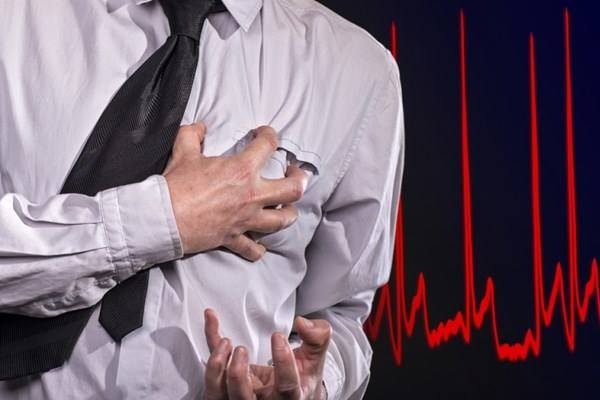Office workers are susceptible to heart attacks.
According to a US study, some occupations can lead to risks of heart diseases such as heart attacks and strokes.
Office workers, sales, food service workers, police officers, firefighters, truck drivers, and medical support workers are at high risk.
 |
American scientists conducted a study of health data of more than 5,500 men and women aged 45 and over, then assessed their cardiovascular health with factors including blood pressure, cholesterol, blood sugar, physical activity, smoking, and diet.
Research shows that 2 in 3 sales or office workers have unhealthy eating habits and bad cholesterol levels. 4 in 5 workers are lazy about exercising. Food service workers have the worst eating habits of any profession, with 4 in 5 having a poor diet.
Nine out of 10 police officers, firefighters, security guards and protective service workers are overweight or obese. Three-quarters of them have bad cholesterol and high blood pressure.
Meanwhile, according to doctors, people susceptible to myocardial infarction include:
Hypertension: People with hypertension have a risk of cardiovascular disease that is 3 times higher for men and 6 times higher for women. The higher the blood pressure, the greater the risk of heart attack. Each year, more than 15 million people with hypertension die from heart attacks.
Obesity: Obesity is also the main cause of myocardial infarction, it has become a disease rather than being overweight, more and more people are suffering from obesity. In the world, more than 19.5 million obese people die from myocardial infarction each year. Obese people have a 40% higher risk of myocardial infarction than normal people.
Diabetes: According to statistics from cardiovascular experts, 2 out of 5 people with myocardial infarction have diabetes. In Vietnam, the number of people with diabetes who have myocardial infarction is more than 70%.
Smoking: Cigarettes are the number one enemy of the heart, a cold “killer”, nicotine in cigarettes accelerates the process of atherosclerosis. According to statistics, 67.5% of myocardial infarction patients are addicted to cigarettes.
In addition, frequent stress, lack of exercise, prolonged use of vitamins... are also factors that lead to a more recent heart attack.
 |
Golden hour for emergency
According to Associate Professor Pham Manh Hung - General Secretary of the Cardiology Association: "With acute myocardial infarction, golden time is life."
Recently, the World Health Organization announced that the best time, with the highest survival rate, is from the time a patient shows signs of a heart attack such as chest pain or collapse until coronary intervention to clear the blood vessels within 2 hours. This is considered the "golden time" for myocardial infarction.
However, the Hanoi Heart Institute has compiled statistics on emergency cases and treatment of myocardial infarction, showing that only nearly 2% of patients come early for emergency treatment during the "golden time".
Most heart attack patients come to the hospital too late, so in many cases they cannot be saved or are rescued but leave serious consequences.
Myocardial infarction often starts very suddenly, progresses rapidly, causing the patient and family to fall into a passive situation. If not taken to the emergency room in time, the patient may die.
Home treatment is extremely important to increase the survival rate of myocardial infarction patients.
The patient should be given a fast-acting coronary vasodilator such as sublingual Risordan or sublingual nitroglycerin spray. If after 5 minutes the chest pain and shortness of breath do not improve, a second dose of the drug may be given.
In addition, if the previously prescribed medication includes Aspirin, the patient can take one pill to prevent blood clots and quickly see a doctor for immediate treatment, no later than 15 minutes.
While waiting for the ambulance, the patient should be placed on a hard surface and chest compressions should be performed 60 times per minute. The effect of chest compressions is to create a mechanical force on the heart, which will cause the heart to contract and pump blood into the circulatory system, helping blood circulate.
According to VNN
| RELATED NEWS |
|---|
